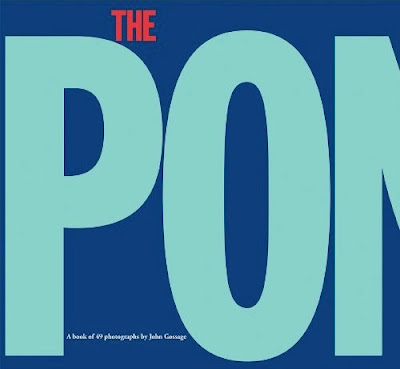
"The river's tent is broken: the last fingers of leaf
Clutch and sink into the wet bank. The wind
Crosses the brown land, unheard. The nymphs are departed."
From The Fire Sermon - The Waste Land
by T.S. Eliot(© 2006 timothy atherton)
Thoughts on photography and what inspires it - books, poetry, film, art. And various other ramblings.

"The river's tent is broken: the last fingers of leaf
Clutch and sink into the wet bank. The wind
Crosses the brown land, unheard. The nymphs are departed."
From The Fire Sermon - The Waste Land
by T.S. Eliot(© 2006 timothy atherton)

"Snow melt in the Odenwald. Goodbye, winter, parting hurts but your departure makes my heart cheer. Gladly I forget thee, may you always be far away. Goodbye, winter, parting hurts."
(March 2010)







"John Gossage, the renowned American photographer and photography book-maker, presents two companion volumes and his first ever books in color. Engaged in a dance, neither book comes first, there is no hierarchy or sequence to the pair of volumes.
Gossage is one of the most literary of photographic book authors and in The Thirty-Two Inch Ruler, the narrative, whilst not autobiographical, is about a neighborhood in which he lives; one that is singular in the United States. At the same time provincial and international, it is a neighborhood populated by ambassadorial residences, embassies, and the lavish private homes of those who are in positions of power and influence in Washington. A project he began with the arrival of a new neighbor, the Secretary of Defense Donald Rumsfeld and made over a full year’s cycle of seasons, these are images from the drift of privilege. The streets, cars, homes and yards of this neighborhood are photographed on perfect spring or autumn days, with sparklingly clear blue skies, and flowers or foliage accenting the order. These are photographs about how one might wish the world to be, how beauty might be seen as desire. In the same year Gossage made the Map of Babylon, photographing digitally from Washington, to Germany, to China and places in-between. This look away, to places beyond the immediate and local, is a classic exploration of particulars of the outside world."




Up now:Luigi Ghirri - Paesaggio italiano/Italian landscape
Lee Friedlander - Factory Valleys
Sally Eauclaire - The New Color Photography and New Color/New Work
Stephen Shore - Fotografien 1973 bis 1993
Andrea Modica - Treadwell
Josef Sudek - Smutná krajina/Sad Landscape


"Considered a groundbreaking book when first published in 1985, John Gossage's The Pond remains one of the most important photobooks of the medium. As Gerry Badger, coauthor of The Photobook: A History, Volumes I and II, asserts, "Adams, Shore, Baltz--all the New Topographics photographers made great books, but none are better than The Pond." Consisting of photographs taken around and away from a pond situated in an unkempt wooded area at the edge of a city, the volume presents a considered foil to Henry Thoreau's stay at Walden. The photographs in The Pond do not aspire to the "beauty" of classical landscapes in the tradition of Ansel Adams. Instead, they reveal a subtle vision of reality on the border between man and nature. Gossage depicts nature in full splendor, yet at odds with both itself and man, but his tone is ambiguous and evocative rather than didactic. Robert Adams described the work as "believable because it includes evidence of man's darkness of spirit, memorable because of the intense fondness [Gossage] shows for the remains of the natural world." Aperture now reissues this exquisitely produced and highly collectible classic monograph. With the addition of three images and two essays, this second edition offers new audiences the opportunity to celebrate this notable work by a master photographer and bookmaker."


"EXPRESS: What does the pond represent?
GOSSAGE:The pond is a literary monologue, a narrative landscape book, character development — all of it. ... It's set in Queenstown, but a few of the shots were actually taken in Berlin. I won't tell which ones. I wanted to speak metaphorically about nature and civilization, which I realized halfway through my project. It's a work of documentary fiction. The sites are universally trivial. There are many ponds, and that one may not even be there anymore."
(my emphasis)

"The Muse of photography is not one of Memory's daughters, but Memory herself." John Berger
"The photograph isn't what was photographed. It's something else. It's a new fact." Gary Winogrand
"The basic material of photographs is not intrinsically beautiful. It’s not like ivory or tapestry or bronze or oil on canvas. You’re not supposed to look at the thing, you’re supposed to look through it. It’s a window.” John Szarkowski"Facts do not convey truth. That's a mistake. Facts create norms, but truth creates illumination." Werner Herzog